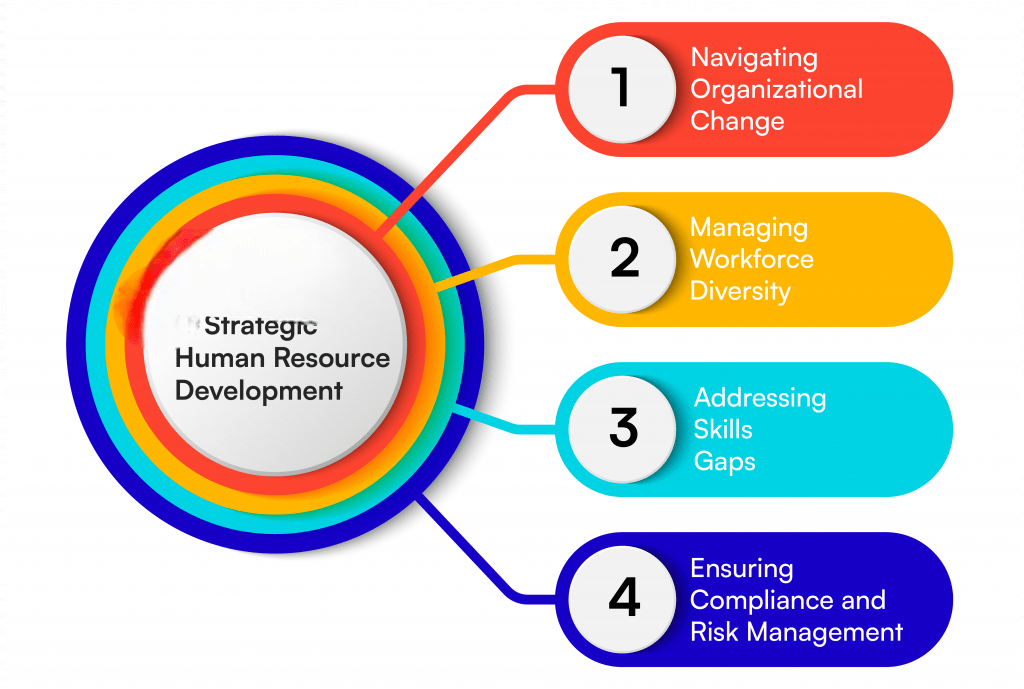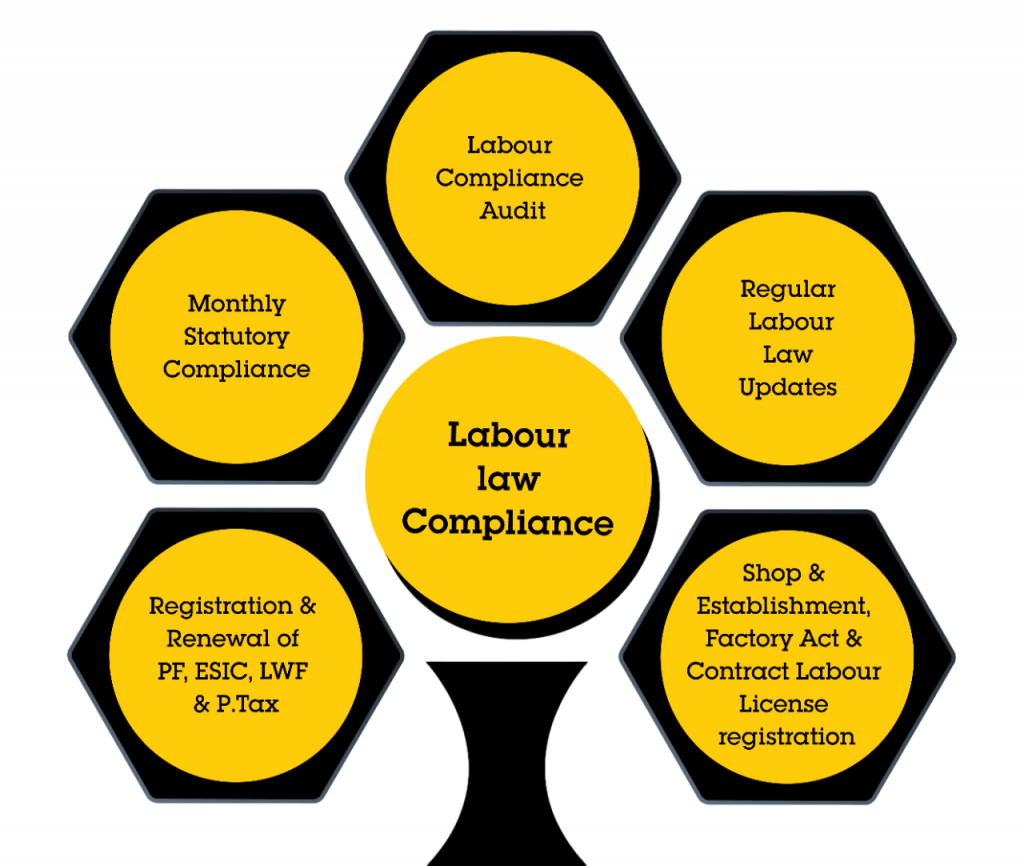
- Introduction to HRM
- Core HRM Subjects
- Elective Topics
- Strategic HRM
- Training and Development
- Labor Laws and Compliance
- Organizational Behavior
- Conclusion
Introduction to HRM
Human Resource Management (HRM) is a strategic and comprehensive approach to managing people within an organization. It plays a crucial role in aligning human capital with the organization’s goals, ensuring that the right people are in the right roles and are motivated, supported, and developed to contribute effectively. HRM goes beyond administrative tasks like hiring and payroll; it views employees as valuable assets whose growth and engagement directly impact organizational success. One of the core functions of HRM is recruitment, which involves attracting and selecting candidates who are best suited for the organization’s needs. Once hired, performance management ensures that employees’ work aligns with business objectives, using feedback and evaluation systems to promote accountability and growth. Employee development is another vital area, focusing on training, team performance, career planning, and skill enhancement to prepare staff for current and future roles. Compensation and benefits management ensures that employees are fairly rewarded, which is essential for motivation and retention. HRM also plays a key role in labor relations, managing interactions with unions and handling workplace disputes in a fair and legal manner. Additionally, HR departments ensure compliance with labor laws and regulations, protecting both the organization and its employees. Beyond operational functions, HRM contributes to shaping the organizational culture, promoting diversity, inclusion, and employee well-being. It helps create a positive work environment where employees feel valued and empowered. In essence, HRM is a critical component of business strategy, helping organizations achieve success through effective people management.
Core HRM Subjects
The core subjects in Human Resource Management (HRM) are essential for understanding the foundational functions that support the strategic and operational goals of an organization. These subjects equip HR professionals with the knowledge and tools needed to manage people effectively and contribute to business success.
- Human Resource Planning (HRP) focuses on anticipating future HR needs and creating strategies to meet them. It ensures that an organization has the right number of employees with the right skills at the right time. Topics include workforce forecasting, talent acquisition strategies, and succession planning, all of which are crucial for long-term workforce stability.
- Recruitment and Selection are vital processes for building a capable workforce. This subject examines how organizations attract and hire the best candidates through effective job postings, resume screening, interviews, and assessment tools. It emphasizes the importance of selecting individuals who align with both job requirements and organizational culture.
- Training and Development enhance employee skills and support career progression. This subject covers various learning methods, including in-person training, workshops, and e-learning. Development programs also address leadership training and succession development to prepare employees for future roles.
- Compensation and Benefits deal with rewarding employees fairly and competitively. This includes salary structures, performance bonuses, benefits packages, and non-monetary incentives. A well-designed compensation system helps retain top talent and boosts motivation.
- Performance Management ensures that employees meet expectations and contribute effectively. It includes goal setting, appraisals, feedback mechanisms, and performance improvement plans.
- Labor Laws and Compliance ensure that the organization adheres to legal standards regarding employment practices, including contracts, wages, working conditions, and employee rights. Understanding these laws helps minimize legal risks and fosters ethical work environments.
Elective Topics in HRM
- HR Analytics: HR Analytics involves using data and statistical techniques to enhance decision-making within human resource management. This topic teaches how to collect, analyze, and interpret HR data to improve processes like recruitment, employee performance evaluation, and retention strategies. Applying analytics helps organizations make evidence-based HR decisions that boost overall efficiency.
- Strategic HRM: This subject focuses on aligning human resource practices with the organization’s long-term goals. It covers how HR contributes to strategic planning, talent management, leadership development, and workforce planning. Understanding strategic HRM helps HR professionals support business growth by ensuring that human capital is effectively developed and utilized.
- Organizational Behavior: Organizational behavior studies how individuals and groups act within a workplace. Topics include motivation, leadership, teamwork, team performance and communication. Knowledge in this area allows HR professionals to manage employee relations better, resolve conflicts, and foster a positive and productive work environment.
- Change Management: Change management deals with guiding employees and organizations through transitions. It involves strategies to reduce resistance, support staff, and implement new policies or systems smoothly. This subject is crucial during periods of mergers, acquisitions, restructuring, or technological upgrades.
- Industrial Relations: This topic examines the dynamics between employers, employees, and trade unions. It addresses collective bargaining, labor laws, dispute resolution, and workers’ rights. Understanding industrial relations is vital to maintaining workplace harmony and preventing labor conflicts.
- Talent Acquisition and Retention: This area explores innovative recruitment methods and strategies to retain high-performing employees, ensuring organizational stability and growth.
- Training and Development: Focuses on employee skill enhancement, leadership development, and career growth initiatives that contribute to organizational success.
Strategic HRM
Strategic HRM integrates human resource management into the overall strategy of an organization. It emphasizes long-term planning and aligning HR initiatives with business goals. The main objectives of strategic HRM are to:
- Improve organizational performance through people.
- Attract, develop, and retain talent aligned with organizational values.
- Foster a culture of continuous improvement.
- Ensure that HR practices contribute to achieving business goals.
- On-the-job training is a common and practical method where employees learn by performing actual work tasks under supervision. This hands-on approach allows employees to gain relevant experience and apply new skills directly to their daily responsibilities. It is often considered the most effective way to learn because it combines instruction with real-world practice.
- Off-the-job training involves employees participating in external courses, workshops, seminars, or certification programs. These sessions are usually conducted outside the workplace and provide focused learning opportunities on specific topics or skills. Off-the-job training allows employees to gain new knowledge in a structured environment, often facilitated by experts or trainers.
- E-learning has become increasingly popular due to its flexibility and accessibility. Online platforms offer a wide range of courses that employees can complete at their own pace, dispute resolution making it easier to balance training with work and personal commitments. E-learning supports continuous learning and helps employees stay up to date with industry trends and best practices.
- The Payment of Gratuity Act: Ensuring that employees are compensated for their long-term service.
- The Payment of Gratuity Act: Ensuring that employees are compensated for their long-term service.
- The Industrial Disputes Act: Addressing disputes between employees and employers.
- Equal Employment Opportunity (EEO): Ensuring that employees are treated fairly and equitably.
Strategic HRM involves identifying key competencies, developing leadership pipelines, and planning for future workforce needs. It also involves evaluating HRM practices to ensure they are contributing to organizational success and adapting them to meet changing market demands.

Training and Development
Training and development are vital components of Human Resource Management, aimed at enhancing the skills, knowledge, and abilities of the workforce. Effective training for business strategy ensures that employees are well-equipped to perform their current jobs efficiently, while development initiatives prepare them for future roles and career advancement.
Beyond training, development initiatives focus on long-term career growth and organizational succession. Leadership training helps prepare Employee Engagement for management roles, while succession planning identifies and develops high-potential individuals to fill key positions in the future. Mentoring programs provide guidance and support, fostering professional growth and knowledge transfer.
Labor Laws and Compliance
Understanding labor laws and ensuring compliance is critical for any organization. This subject covers various labor laws, such as:
Compliance with labor laws protects both the organization and its employees, promoting a fair and transparent work environment.The Industrial Disputes Act: Addressing disputes between employees and employers.

Organizational Behavior
Organizational behavior is the study of how individuals and groups act within an organization, dispute resolution focusing on the patterns of behavior, attitudes, business strategy and interactions that influence workplace dynamics. Understanding organizational behavior is crucial for Human Resource professionals as it provides valuable insights into managing people effectively and creating a positive work environment. One key benefit of studying organizational behavior is improving communication and collaboration within teams. When HR professionals understand the ways individuals communicate and interact, they can design strategies that enhance information flow, encourage teamwork, and reduce misunderstandings. Effective communication leads to stronger relationships and better coordination among employees, which ultimately boosts productivity. Another important aspect is fostering a positive organizational culture. Organizational behavior helps identify the values, norms, and behaviors that shape the workplace atmosphere. HR can leverage this knowledge to promote behaviors that align with the company’s goals and values, encouraging employee engagement and satisfaction. A healthy culture attracts and retains talent, drives motivation, and supports innovation. Additionally, organizational behavior provides tools to address conflicts and manage team dynamics. Conflict is inevitable in any workplace, but understanding the underlying causes whether personality clashes, miscommunication, or differing goals allows HR professionals to mediate effectively and find constructive solutions. Managing team dynamics ensures that diverse groups work cohesively, leveraging individual strengths while minimizing friction.Overall, organizational behavior is essential for developing effective leadership strategies, enhancing team performance, and creating a productive, supportive workplace. By applying these principles, HR professionals can help organizations achieve their objectives while maintaining a positive environment for employees.
Conclusion
Human Resource Management (HRM) is a dynamic and essential field that significantly contributes to the overall success and growth of an organization. It involves a strategic and structured approach to managing people, ensuring that Employment Opportunity are effectively recruited, dispute resolution, developed, motivated, and retained. HRM is not merely about handling administrative functions; it encompasses a broad range of activities that focus on optimizing human potential and aligning it with the organization’s goals. By understanding both core and elective HRM subjects, professionals in this field can build the knowledge and skills required to address the complex challenges of managing people. Core subjects such as human resource planning, recruitment and selection, training and development, Talent Acquisition and Retention performance management, Employment Opportunity and compensation provide a strong foundation for managing workforce needs. Elective subjects like organizational behavior, labor laws, strategic HRM, and HR analytics allow for deeper specialization and help HR professionals make informed, data-driven decisions. HR professionals play a key role in creating a positive and productive work environment. They are responsible for shaping organizational culture, enhancing employee engagement, and ensuring compliance with labor regulations. Their efforts directly impact employee satisfaction and performance, which in turn influence the organization’s ability to achieve its strategic objectives. From attracting top talent to evaluating employee performance, HRM covers every critical stage of the employee lifecycle. By mastering the principles and practices of HRM, professionals can contribute meaningfully to business success, support continuous improvement, and ensure that the organization is well-equipped to adapt and thrive in a competitive environment.





